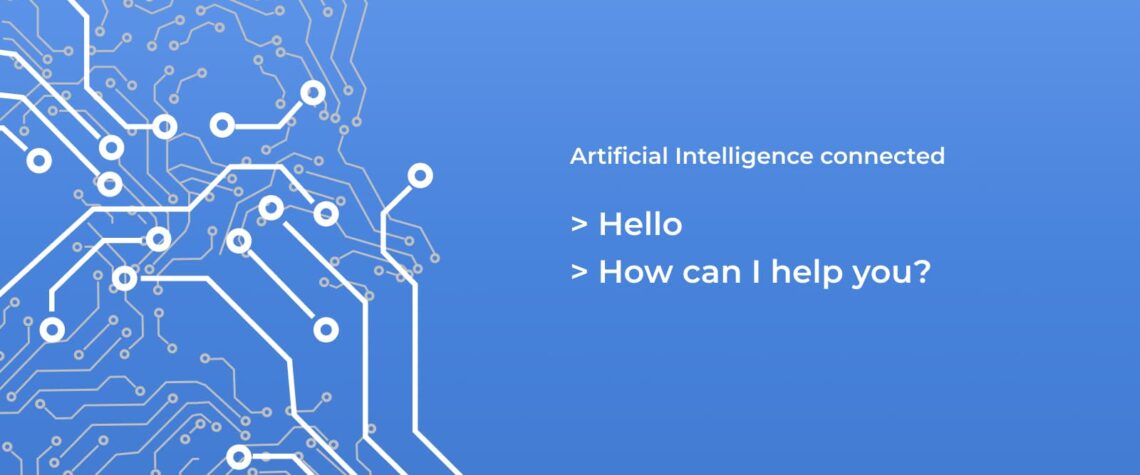In the current market, the most influential opinions claim that we are entering the Fourth Industrial Revolution phase, which is undoubtedly a core modification within human progress.
Our devices may be able to handle vast loads of data and assist us with daily challenges. Yet, they still have a long way to go before they can even come close to matching the incredible power and complexity of the human brain.
Artificial Intelligence Definition
Artificial Intelligence (AI) is a definition of smart systems that can complete duties that usually demand human intervention. This includes various skills like studying on experience, understanding natural language, recognizing patterns, and making data-based decisions.
At its core, AI aims to simulate human cognitive functions, allowing computers to interpret vast amounts of data, identify trends, and adapt to changing circumstances autonomously. AI software can range from simple rule-based apps to complicated neural networks capable of simulating human-like intellect. They find applications in diverse areas like medicine, finance, transportation, entertainment, etc., revolutionizing businesses by automating tasks, optimizing processes, and providing innovative resolutions to tricky difficulties.
Types of Artificial Intelligence
Numerous kinds of AI are available. Three main types stand out prominently. They are commonly used in various domains, especially for on-demand delivery app development. Here are the main types:
1) Artificial Narrow Intelligence (ANI). This type of AI is created to succeed in a specific field. For example, it can outperform world chess champions during intense matchups.
2) Artificial General Intelligence (AGI). This AI is created to simulate a human brain. It can do any task. This AI has the incredible ability to tackle tasks, juggle workloads, crack complex problems, delve into abstract thinking, make insightful comparisons, absorb knowledge at lightning speed, and tap into a wealth of accumulated experience.
3) Artificial Superintelligence (ASI). This is a hypothetical AI system that significantly exceeds human intellect in all realms of knowledge, from groundbreaking scientific breakthroughs to an unrivaled awareness of general knowledge and social finesse.
Artificial Narrow Intelligence Rules the World
Artificial Narrow Intelligence effortlessly outperforms human intellect in solving narrow-focused tasks. Here are some of the common examples of ANI use you may face:
- A smartphone includes many forms of Artificial Narrow Intelligence (ANI). Using ANI helps with navigation, music, weather, and virtual assistance.
- Shield your inbox with the mighty power of the spam filter! This incredible system detects and analyzes spam and uses its vast knowledge and your personal preferences to effortlessly organize your messages into specialized folders.
- The Google Translate translator is a true master at its narrow-focused task, flawlessly unraveling the mysteries of languages with precision and finesse.
ANI systems do not present any potential risks to humans. In the worst-case scenario, the failure of these systems can unleash havoc, triggering power surges and sending shockwaves through the financial market.

How Artificial Intelligence Is Used in Modern Businesses
The adoption of artificial intelligence (AI) is considerably affecting various industries, transforming how we work and opening up new business opportunities. Let’s check several domains where AI has the most significant impact and provide instances of its use.
Healthcare
AI is used in medicine to automate diagnostic and treatment tasks. For example, machine learning solutions can analyze medical images such as MRI scans or X-rays to detect cancer or osteoarthritis. AI also develops individualized treatment plans based on a patient’s medical data.
Finance
Financial businesses use artificial intelligence to predict market trends and determine the best investment strategies. Machine learning algorithms are commonly used to analyze various of economic data and identify patterns that help make informed financial decisions.
Transportation
In the automotive industry, AI e is used to improve autonomous driving tools. For example, machine learning-based systems can analyze data from a car’s sensors and cameras to help improve driving decisions and prevent accidents.
Advertising and marketing
Various businesses use artificial intelligence to personalize advertising campaigns and improve customer interactions. For instance, machine learning algorithms can analyze consumer behavioral data to suggest the most appropriate products or services for clients.
Manufacturing
Artificial intelligence optimizes production processes and prevents equipment failures in the manufacturing industry. For example, AI-based monitoring systems can analyze data from sensors on equipment and warn of potential problems before they occur.
These examples demonstrate how different business domains can use AI technology to improve operations and results.
Final Words
In conclusion, artificial intelligence (AI) represents a groundbreaking technology with significant potential to revolutionize various aspects of our lives. From boosting any industry efficiency to enhancing healthcare and transportation, AI offers numerous advantages that promise to reshape the future. Despite potential challenges and risks, the trajectory of AI development indicates a promising future where its capabilities continue to evolve, offering endless possibilities for innovation and progress. As we navigate this transformative journey, it’s evident that AI holds significant promise for shaping a brighter and more advanced future for humanity.
